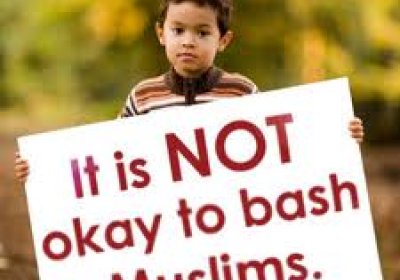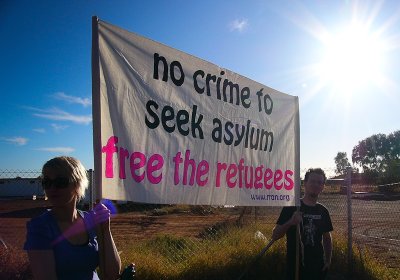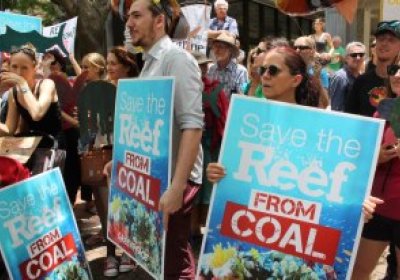Parliamentary leader of the far-right Dutch Freedom Party, Geert Wilders, is visiting Australia this week. He is speaking at public meetings in Melbourne, Perth and Sydney.
Wilders makes use of a tightly rehearsed script focusing on opposition to Islam which he describes as a "totalitarian ideology" to cover for his racist and fascist outlook.
Australia
As the fossil fuel lobby tells it, natural gas — in chemical terms, almost all methane — is clean and green. Burn it in a modern power plant, and per unit of electricity produced, only about half as much carbon dioxide is sent up the exhaust stack compared to good-quality coal.
That’s like saying you’re making progress if you get off heroin onto amphetamines. Natural gas is still a fossil fuel. Even if the sums worked the way the gas corporations suggest, a wholesale switch to gas would put off climate disaster only by a few decades.
Billionaire Rupert Murdoch's propaganda machine has a penchant for using Green Left Weekly as a metaphor for left-wing opinion.
This was on the sports page of the February 4 issue of its giveaway tabloid mX: “Shane Warne played Statesman last week with his ambitious Where is Australian Cricket At? Volume 1 ... it contained more utopian fantasy than your average issue of Green Left Weekly.”
The Save Coburg group has already registered a win.
The group was formed at a public meeting of about 60 residents, facilitated by newly elected Socialist Alliance councillor Sue Bolton.
The main concern at the meeting was the scale of a development proposed by Moreland Council, which will create two huge corridors of 10-storey buildings on Louisa, Waterfield and Bell Street.
The Labor federal government and the Greens said on January 23 that an 8.6% fall in emissions from the energy sector proved the new carbon price scheme was working. But evidence from Europe suggests Australia’s emissions trading scheme is likely to hinder, not help, emissions cuts.
Ten years ago, the February 14-16, 2003 global protests against the looming US-led invasion of Iraq involved more than 12 million people in 700 cities around the world. A million people marched around Australia — 500,000 of them in a huge protest in Sydney that was so big that most participants could not move (let along march) from Hyde Park.
It was the biggest globally coordinated protest ever — certainly the biggest global anti-war protest.
It was great to see all big health unions in Victoria hold a joint community rally on February 3 to protest against the state and federal governments’ slashing of health funding in Victoria. But any casual observer couldn’t help feeling that a re-elect Labor strategy was lurking.
It was true that all of the secretaries from the key health unions roundly condemned the state Coalition and federal Labor governments for the $107 million cut to be implemented by June this year. The cut will result in more than 300 beds closing, elective surgery delays and job losses in many hospitals.
National protests have been held around the country to oppose changes to welfare payments for sole parents. The federal Labor government is forcing parents to switch to the Newstart allowance once their youngest child turns eight, leaving parents up to $140 a fortnight worse off.
A new group, the Single Parents Action Group (SPAG), coordinated protests across the country on February 5. Rallies took place in every state and territory.
The Refugee Action Coalition has condemned the deal with New Zealand to take 150 refugees processed in Australia each year.
“This deal does nothing to provide security for a greater number of asylum seekers or refugees. Australia can easily resettle 150 a year itself.
Soon after Prime Minister Julia Gillard announced the September 14 federal election, opposition immigration spokesperson Scott Morrison confirmed the Coalition's startling plans to turn back every refugee from Sri Lanka without exception.
This would include a new plan to enlist the Australian and Sri Lankan navies to detain and return to Colombo any refugee trying to flee the country by boat, Morrison told ABC's Lateline on February 4.
About 100 people gathered outside the Queensland state government’s executive building on February 1 to voice concerns over the coal industry’s destruction of the Great Barrier Reef.
The rally was organised under Greenpeace's Save the Reef campaign. It was supported by the Australian Youth Climate Coalition, the Australian Marine Conservation Society, Friends of the Earth and Beyond Zero Emissions.
A highly publicised report by the United Nations' refugee agency labeled conditions in the Manus Island refugee camp “unlawful”, but stopped short of pushing the government to close it completely.
The report was released by the United Nations High Commissioner for Refugees on February 4 after a visit to the detention centre over January 15-17. It principally called for the release of children from the “closed” detention camp. It said the Australian government's regime of “arbitrary, indefinite detention” with no legal framework was “deeply troubling”.
- Previous page
- Page 672
- Next page










